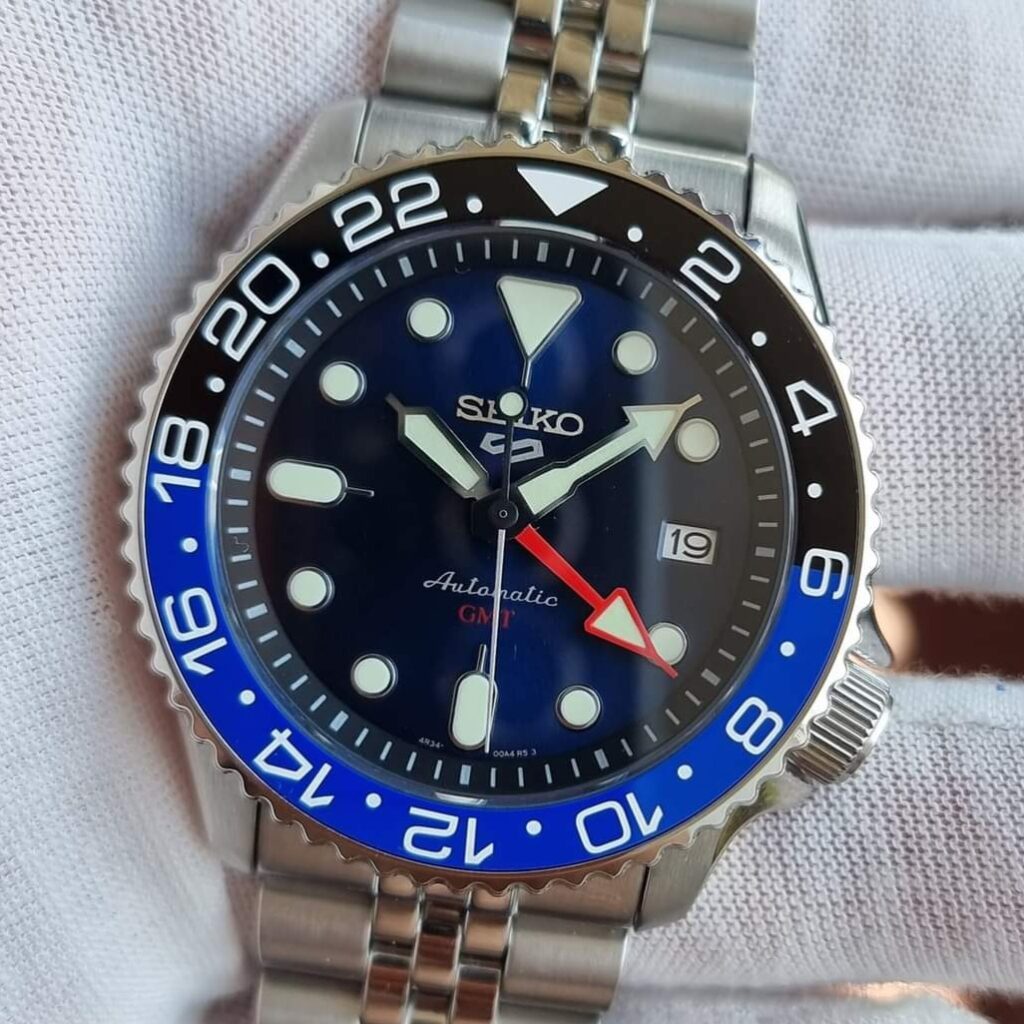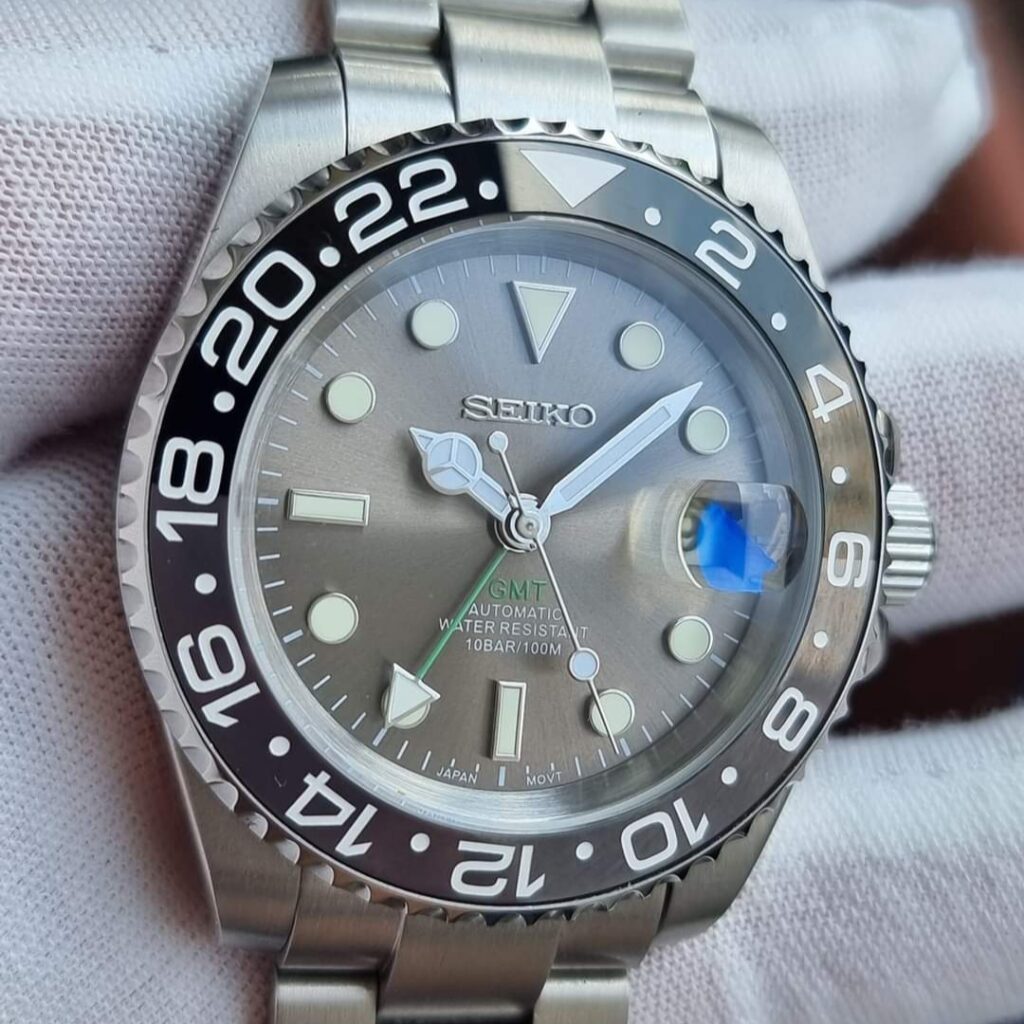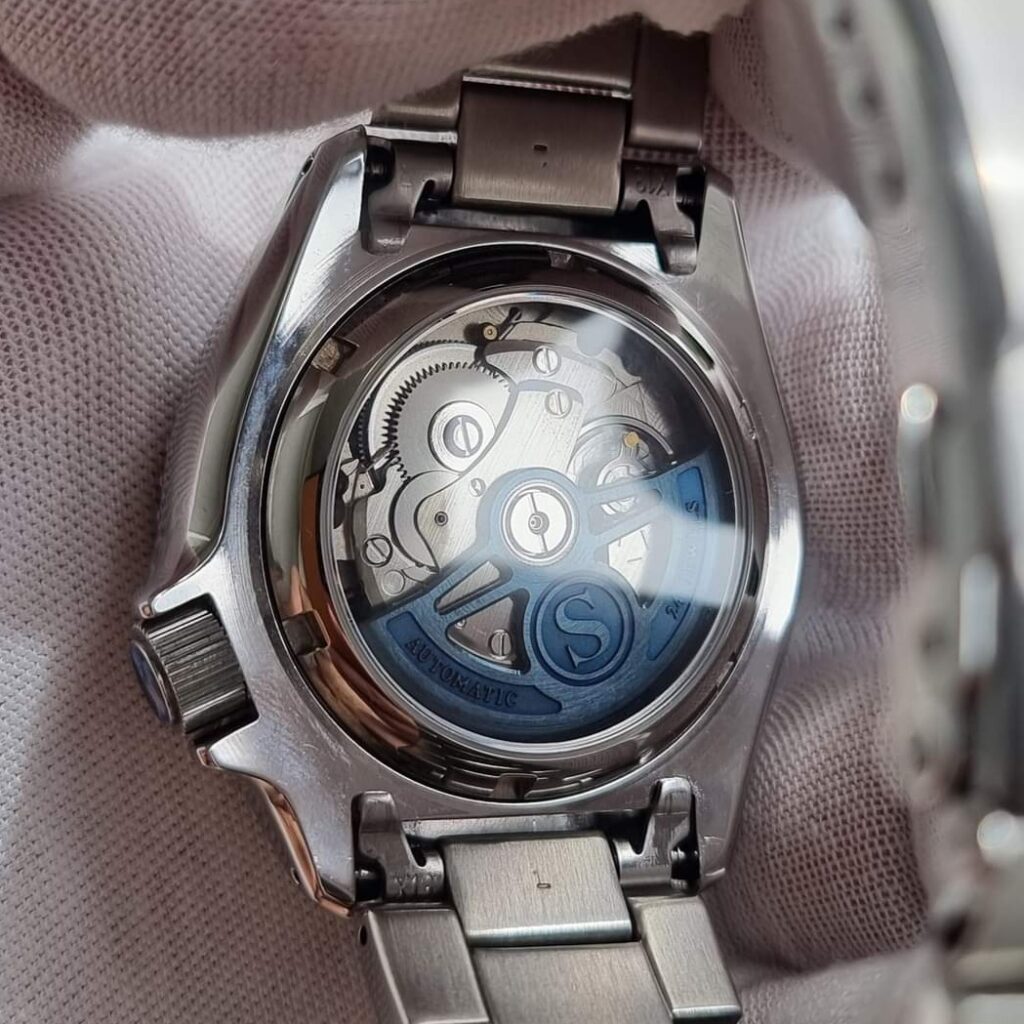Tale 70: Wearing a Watch Can Easily Improve Time Management Skills
Table of Contents
In today’s fast-paced world, effective time management is essential for success. One of the simplest yet most powerful tools at your disposal is a wristwatch. While smartphones and digital devices abound, the humble wristwatch remains a classic accessory that can significantly enhance your ability to manage time effectively. This article explores how wearing a watch can improve your time management skills, answering ten frequently asked questions and providing valuable insights into the benefits of this timeless accessory.
Wearing a watch is more than just a fashion statement. It’s a practical tool that can significantly enhance your time management skills. In our fast-paced lives, where every minute counts, the ability to keep track of time efficiently can make a substantial difference in productivity and overall well-being. Let’s delve deeper into how this simple accessory can influence your daily routine and help you become more organized and punctual.
The Power of Time Management
Time management isn’t just about keeping track of hours; it’s about making the most of every moment. Wearing a watch can help you achieve this in several ways:
- Increased Productivity: A watch allows you to check the time quickly without the distractions that come with smartphones.
- Punctuality: Studies show that people who wear watches are more likely to arrive on time for appointments and meetings.
- Organization: A watch signals to others that you value time, enhancing your professional image.

10 Frequently Asked Questions About How Wearing a Watch Improves Time Management
Why is wearing a watch better than checking my phone?
Checking your phone often leads to distractions from notifications and apps. A wristwatch provides an immediate glance at the time without the temptation to scroll through social media or emails.
.
Can wearing a watch really make me more punctual?
Yes! Research indicates that individuals who wear watches tend to be more conscientious and arrive earlier for appointments compared to those who don’t wear one.
.
How does a watch enhance my professional image?
Wearing a watch conveys responsibility and organization, traits that are highly regarded in professional settings. It shows that you respect both your time and that of others.
.
What types of watches are best for time management?
Traditional analog watches are often preferred for their simplicity and ease of use. However, smartwatches can also be beneficial if they are used wisely, as they can provide reminders without overwhelming you with notifications.
.
Does wearing a watch influence my work ethic?
Absolutely! Wearing a quality timepiece often reflects a preference for quality in all areas of life, including work performance.
.
How can I choose a watch that suits my lifestyle?
Consider your daily activities and choose a watch that fits those needs—whether it’s formal for business meetings or casual for everyday wear. Look for durability and functionality as key features.
.
Is there any psychological benefit to wearing a watch?
Yes! Wearing a watch can create a psychological association with responsibility and punctuality, reinforcing positive habits over time.
.
Can wearing a watch help reduce stress?
By keeping track of time efficiently, you can minimize the anxiety associated with being late or unprepared, leading to a more relaxed state of mind.
.
Are there specific features I should look for in a watch?
Look for features like water resistance, durability, and ease of readability. Some may prefer additional functionalities like timers or alarms that can aid in task management.
.
How do I maintain my watch for longevity?
Regular maintenance is crucial. For mechanical watches, ensure they are serviced every few years, while quartz watches require battery changes as needed.
.
The Psychological Impact of Wearing a Watch (Time Management)
The act of wearing a watch can create a psychological commitment to managing your time effectively. When you have a watch on your wrist, it serves as a constant reminder of the time, subtly urging you to stay on schedule. This psychological cue can lead to better time awareness, making you more conscious of how you allocate your hours throughout the day.
Research in behavioral psychology suggests that visual cues can significantly influence our actions. Just as having a calendar in your workspace can prompt you to check your schedule regularly, wearing a watch can encourage you to be more mindful of the time. This awareness helps in prioritizing tasks and ensuring that deadlines are met without last-minute rushes.
Enhancing Focus and Reducing Distractions
In an age dominated by smartphones and digital devices, distractions are everywhere. Notifications from social media, emails, and various apps can pull your attention away from important tasks. A wristwatch offers a distraction-free way to keep track of time. By simply glancing at your wrist, you can check the time without the temptation to dive into your phone’s myriad distractions.
Moreover, using a watch encourages you to develop a habit of checking the time at regular intervals. This practice can help you stay focused on your current task while still being aware of how much time you have left. For instance, if you’re working on a project with a deadline, setting specific intervals to check your watch can remind you to stay on track without interrupting your workflow with unnecessary phone checks.

The Role of Watches in Setting Goals
Wearing a watch also plays a crucial role in goal setting and achievement. When you have specific goals for the day—whether it’s completing tasks at work or managing personal commitments—a watch helps you allocate time effectively for each task. You can break down larger goals into smaller, manageable segments and assign specific time blocks for each segment.
For example, if you aim to finish a report by 5 PM, wearing a watch allows you to set mini-deadlines throughout the day. You might decide to spend one hour drafting the introduction, another hour on research, and so forth. This structured approach not only enhances productivity but also provides a sense of accomplishment as you check off completed tasks against the clock.
Cultivating Punctuality Through Routine
Punctuality is often viewed as a reflection of professionalism and respect for others’ time. Wearing a watch instills a sense of routine that promotes punctuality. When you wear a watch regularly, it becomes part of your daily ritual—something that reminds you to be on time for meetings, appointments, or social gatherings.
Establishing this routine is particularly important in professional settings where being late can impact not only your reputation but also the dynamics of teamwork and collaboration. By consistently wearing a watch and adhering to schedules, you develop habits that reinforce punctuality over time.
Building Confidence and Professionalism
A well-chosen wristwatch can significantly enhance your personal brand and professional image. It conveys attention to detail and an appreciation for quality—traits that are highly valued in any professional environment. When others see you wearing a stylish yet functional watch, it sends a message that you take your responsibilities seriously.
This boost in confidence can translate into better performance at work or in social situations. Knowing that you are well-prepared and punctual allows you to engage with colleagues or clients more effectively. You’re less likely to feel rushed or flustered when arriving on time, which contributes positively to your overall demeanor and interactions.
The Versatility of Watches in Different Settings
Watches come in various styles and functionalities, making them suitable for different settings—be it formal business environments or casual outings. This versatility allows individuals to choose watches that not only fit their style but also complement their lifestyle needs.
For instance, if you’re often attending meetings or formal events, investing in an elegant analog watch can enhance your professional attire while keeping you punctual. On the other hand, if you’re an active individual who enjoys outdoor activities or sports, opting for a durable smartwatch with fitness tracking features may serve both functionality and style.
Time Management Techniques Enhanced by Wearing a Watch
Incorporating specific time management techniques while wearing a watch can yield remarkable results. One effective method is the Pomodoro Technique, which involves working in focused intervals (typically 25 minutes) followed by short breaks (5 minutes). With a watch on hand, it’s easy to set these intervals without needing additional timers or distractions from electronic devices.
Another technique is the Eisenhower Matrix, which helps prioritize tasks based on urgency and importance. By wearing a watch while categorizing tasks into this matrix, you’ll be better equipped to allocate appropriate time slots for each task based on its priority level.

The Emotional Connection with Time
Time is often associated with emotions—whether it’s the joy of completing tasks ahead of schedule or the stress of looming deadlines. Wearing a watch fosters an emotional connection with how we perceive time passing throughout our day. It allows us to appreciate moments more fully instead of feeling rushed or overwhelmed by endless lists of tasks.
When we take control over our time through effective management practices—enhanced by wearing a watch—we cultivate feelings of satisfaction and accomplishment as we navigate our daily responsibilities with ease.
Conclusion: Time Management A Timeless Investment in Yourself
Incorporating the simple act of wearing a wristwatch into your daily life has profound implications for how you manage your time. From enhancing focus and reducing distractions to cultivating punctuality and professionalism, watches serve as invaluable tools for effective time management.
As we’ve explored throughout this discussion, investing in quality wristwatches is not merely about aesthetics; it’s about embracing an accessory that empowers us to take control over our schedules and achieve our goals efficiently.
By becoming more mindful of our time through this timeless accessory, we set ourselves up for success—both personally and professionally—making every moment count toward building the life we desire.
- Tale 73: Luxury Watch Investing: How to Build a Valuable CollectionTale 73: Luxury Watch Investing: How to Build a Valuable Collection Investing in luxury watches has become an increasingly popular avenue for wealth preservation and growth. The luxury watch market is not only about aesthetics and craftsmanship; it also represents a unique investment opportunity that can yield substantial returns. As collectors and investors alike seek… Read more: Tale 73: Luxury Watch Investing: How to Build a Valuable Collection
- Tale 72: Automatic Watch Accuracy: How to Maintain PrecisionTale 72: Automatic Watch Accuracy: How to Maintain Precision In the world of horology, automatic watches stand out for their intricate mechanics and the artistry involved in their craftsmanship. However, many enthusiasts and potential buyers often ponder a crucial question: How accurate are automatic watches, and how can one maintain their precision? This blog post… Read more: Tale 72: Automatic Watch Accuracy: How to Maintain Precision
- Tale 71: Watch Mods: How to Elevate Your Look with Wave DialsTale 71: Watch Mods: How to Elevate Your Look with Wave Dials In the world of horology, watch modifications—or “watch mods”—have emerged as a popular way for enthusiasts to personalize their timepieces. Whether you’re looking to enhance functionality, aesthetics, or both, modding allows you to create a unique watch that reflects your style. One standout… Read more: Tale 71: Watch Mods: How to Elevate Your Look with Wave Dials
- Tale 70: Wearing a Watch Can Easily Improve Time Management SkillsTale 70: Wearing a Watch Can Easily Improve Time Management Skills In today’s fast-paced world, effective time management is essential for success. One of the simplest yet most powerful tools at your disposal is a wristwatch. While smartphones and digital devices abound, the humble wristwatch remains a classic accessory that can significantly enhance your ability… Read more: Tale 70: Wearing a Watch Can Easily Improve Time Management Skills
- Tale 69: The Rise of Digital Wrist Watches: Your Ultimate GuideTale 69: The Rise of Digital Wrist Watches: Your Ultimate Guide Digital wrist watches have transformed the way we perceive timekeeping, blending functionality with style. As technology advances, these timepieces have evolved from simple digital displays to sophisticated gadgets that cater to various lifestyles. In this blog post, we will explore everything you need to… Read more: Tale 69: The Rise of Digital Wrist Watches: Your Ultimate Guide
